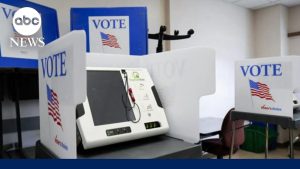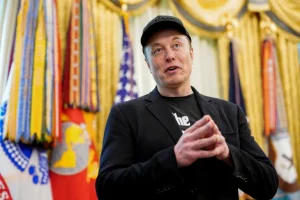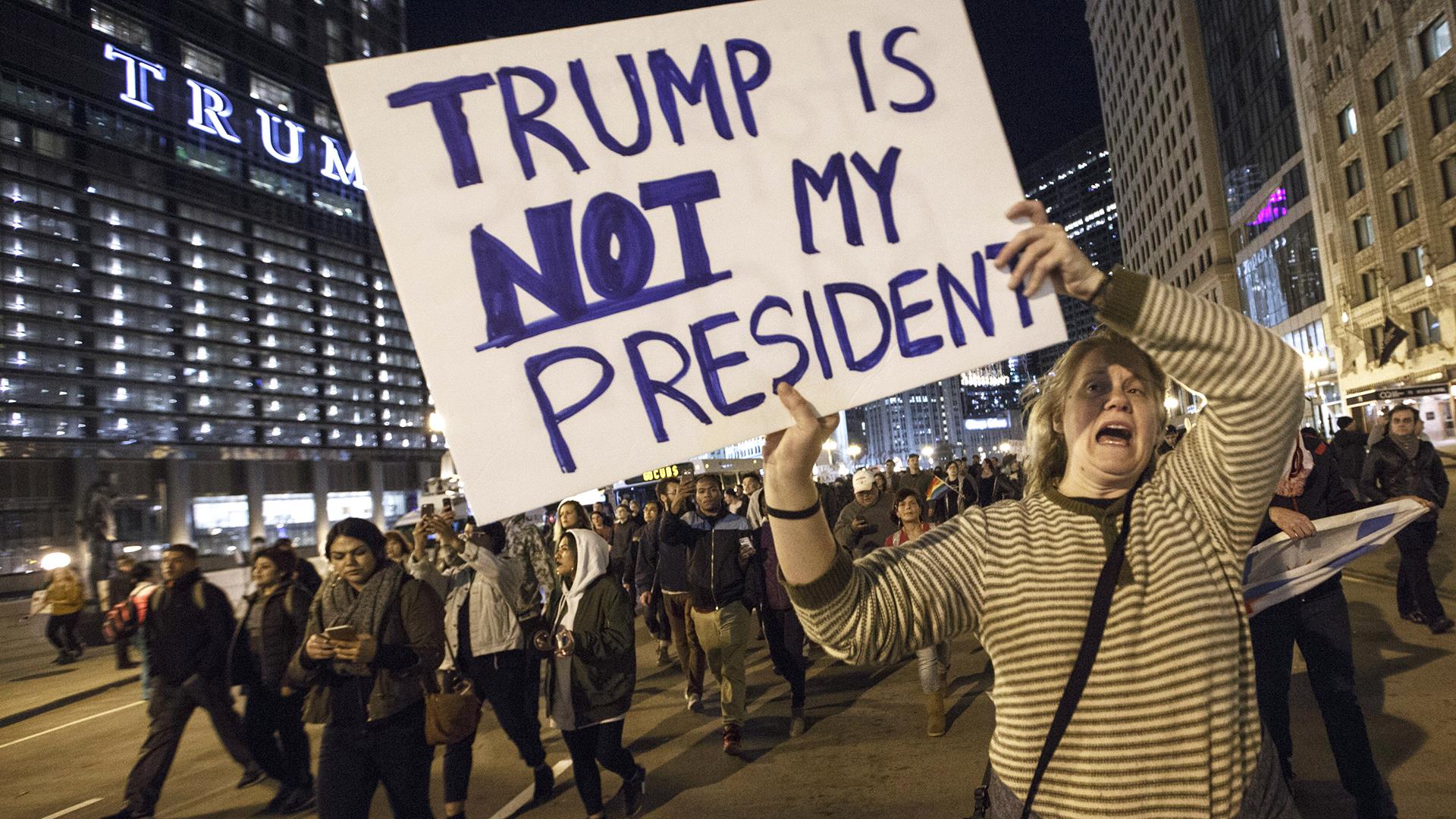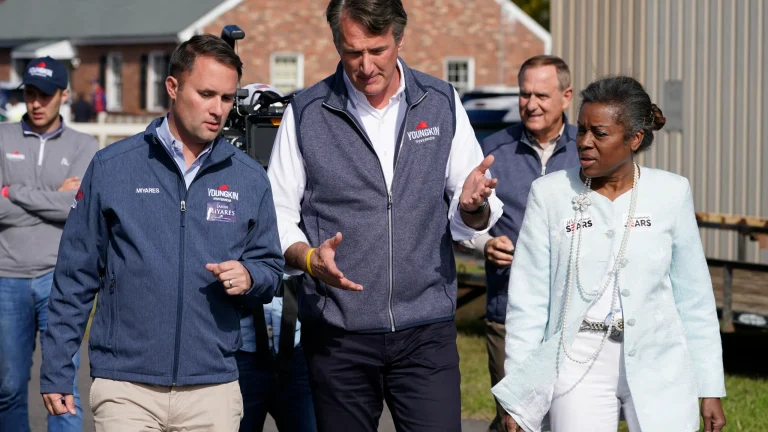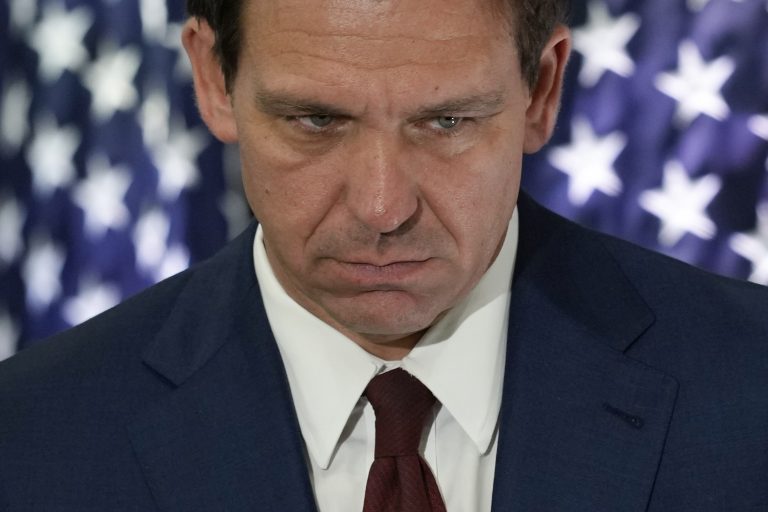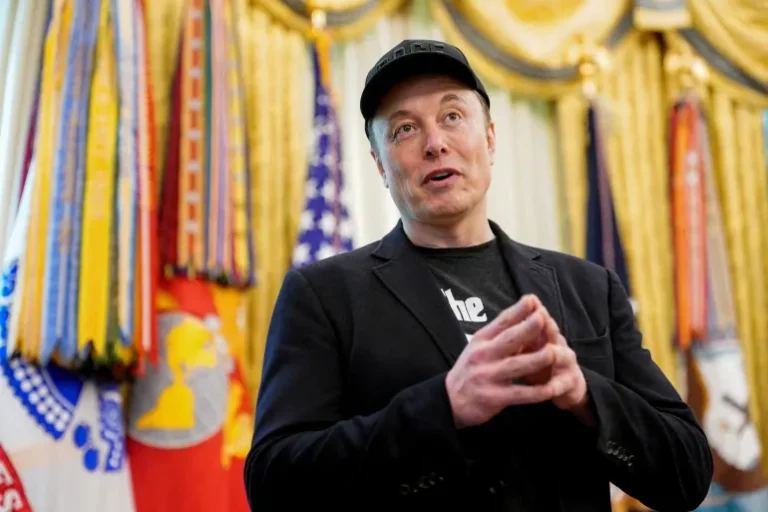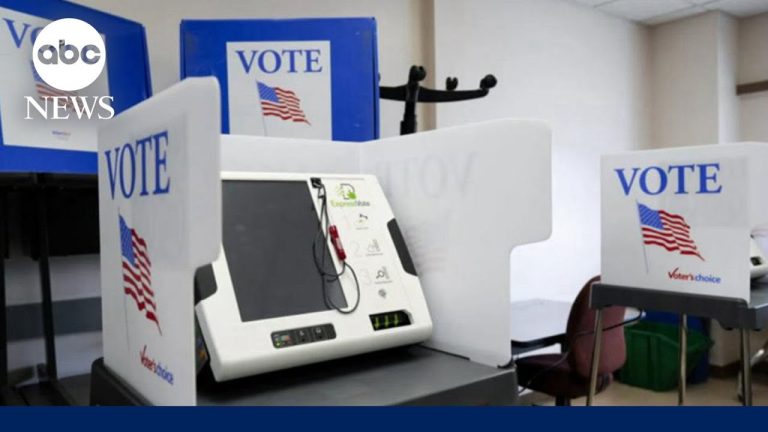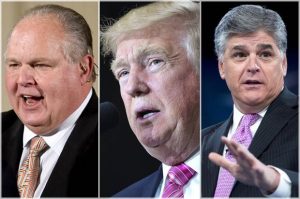Donald Trump’s war on voting rights, like much of his behavior, is rooted in revenge. After the November election, Trump tweeted that he lost the popular vote because 3 million to 5 million “illegals” fraudulently voted for Hillary Clinton. According to Trump, an unprecedented and truly astonishing amount of fraud was committed in the 2016 election — and no officials noticed. Without any evidence, he’s repeated accusations that nefarious groups organized non-citizens, dead people, and citizens registered in multiple states to engage in a huge voting scandal. He has even set up a commission – which held its first public meeting last month — to scour the country looking for evidence of illegal voting.
Trump’s efforts are rooted in his own need to avoid humiliation, but voter suppression is nothing new for the Republican Party. It has long been a key part of its strategy to reduce turnout among poor, minority and younger voters who, when they vote, tend to support Democratic candidates. Like other Republicans before him, Trump justifies the war by promoting the myth of widespread “voter fraud.”
Voter fraud is not a problem, as academic researchers have shown over and over. The Brennan Center for Justice at New York University examined every federal election between 2000 and 2015. More than a billion votes had been cast over that period. The researchers found only 31 examples of voter fraud.
Yet the canard of “voter fraud” persists on the right. Rather than focus on protecting our voting system from Russian hackers, or proposing ways to increase voter turnout, Trump’s Presidential Advisory Commission on Election Integrity is going on a wild goose chase to protect us from nonexistent fraudulent voters. This is little more than a smokescreen to justify more voter suppression laws. Trump’s commission is part of a larger strategy to reshape the electorate to ensure Republican domination.
All myths have an origin story. The Republican-sponsored voter fraud myth gained momentum in the early 2000s as an attack on ACORN, a community organizing group that was engaged in a bold voter registration drive among low-income, mostly minority, voters in cities and swing states like Florida and New Mexico.
To thwart ACORN’s efforts, Karl Rove – George W. Bush’s key political operative – led a campaign to destroy the group’s reputation by accusing it of voter fraud. In 2005, for example, Attorney General Alberto Gonzales ordered David Iglesias, the U.S. attorney in New Mexico and a Republican, to investigate ACORN for voter registration violations. After Iglesias’ probe came up empty-handed, Gonzales fired him. Then Bush and Rove escalated the campaign to persuade Americans that extensive voter fraud was a serious problem and required strict new laws to make registration more difficult. By doing so, they hoped not only to stop ACORN but also to intimidate other groups, like the League of Women Voters, from registering new voters.
During the 2008 election season, ACORN registered more than 800,000 young, poor and minority voters. A handful of ACORN’s 13,000 part-time canvassers faked voter registration forms to get paid for work they didn’t do. ACORN immediately informed local election officials when it discovered the counterfeit signatures, as the group was required to do by law.
As revealed in a new documentary film, “ACORN and the Firestorm,” Republicans and their allies in the right-wing media (Fox News, Rush Limbaugh, Glenn Beck and others) jumped on those small morsels of information to accuse ACORN of being part of a criminal conspiracy.
Soon the controversy shifted from the fringe to the mainstream. It peaked in October 2008 during a televised presidential debate between John McCain and Barack Obama. Before millions of viewers, McCain warned that ACORN, whom he linked to Obama, “is now on the verge of maybe perpetrating one of the greatest frauds in voter history in this country.” This modest community-based organization, the Arizona senator warned, may be “destroying the fabric of democracy.”
The attack worked. Even some Democrats in Congress refused to come to ACORN’s defense. Numerous independent investigations cleared ACORN of any criminal wrongdoing, but they were too late. By the next year, ACORN was dismantled after its foundation funders withdrew their support.
After ACORN was gone, however, Republicans continued their war on alleged voter fraud and even kept using ACORN as their bogeyman. In 2012, half of GOP voters said they believed that ACORN stole that year’s election for President Obama, even though the group no longer existed. Earlier this year, Rep. Marsha Blackburn, R-Tenn., told CNN that ACORN was one of the reasons Trump needed a task force to investigate voter fraud.
In May, Trump appointed Vice President Mike Pence and Kansas Secretary of State Kris Kobach to head the so-called “voter integrity” commission, designed as a fishing expedition to find widespread voter fraud. Trump packed the commission with staunch right-wingers – including Hans von Spakovsky of the Heritage Foundation and J. Christian Adams, a Republican election lawyer and former Department of Justice official in the Bush administration – who have voiced strong support for restricting voting rights.
At the commission’s opening session in July, Kobach claimed that voter fraud was widespread across the country and even in his home state. He began making that accusation when he ran for his current office in 2010, insisting that as many as 2,000 people adopted the identities of dead people to vote in Kansas. That state’s secretary of state at the time — Ron Thornburgh, a Republican who served in that position for 16 years – said that “the voter fraud Kris Kobach speaks of does not exist.” But Kobach kept repeating his lie, even announcing that he’d found a smoking gun. He claimed that someone had cast a ballot in the August primary using the name of a dead man named Alfred K. Brewer. It didn’t take long for reporters to find the 78-year old Brewer in his yard, raking leaves. Kobach had confused Brewer with his father, who hadn’t voted since he died in 1996.
Kobach has been a staunch advocate of employing discriminatory tactics to infringe upon the rights of voters. Since he was elected Kansas’ secretary of state, he has run a program in which his office has collected tens of millions of voting records from other states in search of duplicate registrations and double votes. The list-matching exercise has turned up practically nothing. Kobach has charged just nine people, most of them senior citizens, with voting in Kansas and another state. Six have pleaded guilty, one case was dismissed and two are pending.
In late July, a federal judge upheld a $1,000 fine against Kobach, citing a “pattern” of “misleading the Court” in voter ID cases.
Despite this setback, Kobach hopes to use the commission to get Republican state election officials to purge the voting rolls of Democratic-leaning voters – poor, young and minority Americans. They will have the support of Attorney General Jeff Sessions, who as U.S. attorney in Alabama brought a baseless prosecution against voting rights activists, which soon fell apart.
In early July, Kobach sent a letter to all 50 states requesting information on their voter rolls, including voters’ names, their birthdays, the last four digits of their Social Security numbers and their voting history dating back to 2006. That request drew strong pushback from more than two dozen secretaries of state, including a few Republicans, who said they would not cooperate with the commission.
Source: http://www.salon.com/2017/08/08/trumps-war-on-voters-has-a-long-history-voting-rights-advocates-are-ready-to-fight-back/

